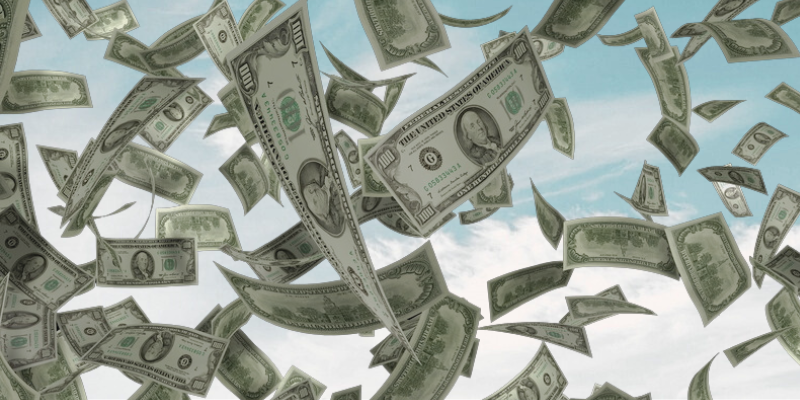There are a seemingly endless number of books about how to make money. There are comparatively few books about how to give money away. It is, however, an arguably more difficult enterprise. Most of us make money, but only a small percentage of us give a significant portion of it away.
It’s not hard to see why: most of us don’t make very much of it, our lives require a constant stream of it, and it is dangerously moreish. Places to live are expensive. Keeping those places warm and lit up at night is expensive. Eating dandan noodles out of paper boxes in those warm, brightly lit places is expensive.
If we have spare money, we want to save it, in case something vital breaks down, or we lose our jobs, or we want to indulge in a meal or a trip or a that briefly distracts us from the daily struggle to make more money. But some people, somehow, are able to forgo the majority of these things.
Several years ago, I was introduced to the philosopher William MacAskill, who at 28 had become the youngest associate professor of philosophy in Oxford’s history. MacAskill was one of the originators of the now somewhat beleaguered Effective Altruism movement, which had its roots in Peter Singer’s ideas about the moral imperative for giving. MacAskill was living on 22k a year, donating anything he earned above that to charities that been meticulously ranked according to how much human life they could improve per dollar donated. He had also founded a meta-charity that aimed to rethink the methods we use to rate and appraise such charities.
MacAskill was one of the inspirations for Arthur Candlewick, the patriarch of a wealthy British family, who, after spending three days hallucinating at the bottom of a mineshaft, decides to give everything away. His wife and children, having not experienced similarly life-altering accidents, are not at all onboard with this radical redistribution of their wealth. Being forced to compare themselves to their saintly new father also forces them to reassess their own moral standings.
Which is how I felt after learning about William MacAskill, Effective Altruism, and the people in these five books who decided to give away large amounts of money. It seems like an inarguably good thing to do, but it also seems impossibly difficult.
*
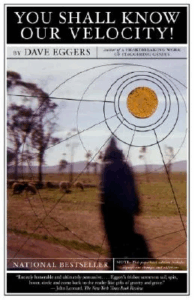
Dave Eggers, You Shall Know Our Velocity
In Dave Eggers’ third novel, Will makes $32,000 after one of his photographs is used for the logo of a lightbulb company. Feeling undeserving of the windfall and struggling with grief after the loss of a friend, Will and his friend Hand set out on a road trip to give the money away to people who need it. What they discover is how messy and unfulfilling trying to give well is. How do you decide who is deserving of your help? How can you resist helping those stood in front of you, even when there might be people further afield who need help more dearly?
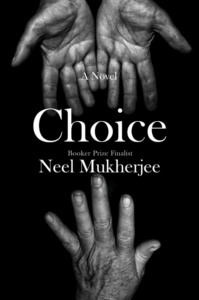
Neel Mukherjee, Choice
Choice is a wonderfully subtle and profound novel in three interlinked stories: A publisher plagued by guilt navigates a morally bewildered industry. An academic is thrust into an impossible moral dilemma. And a rural Indian family find their lives turned upside down by the arrival of a gift. Together, these stories form an exploration of the tangled moral questions that loom over our everyday lives. How far do our moral responsibilities extend? And is there a way of ensuring that our attempts to do good succeed? It would be a spoiler to say who gives away money and where, but again this is a story about the complexities of guilt and giving, of how even the most well-meaning acts can end up doing more damage than good.
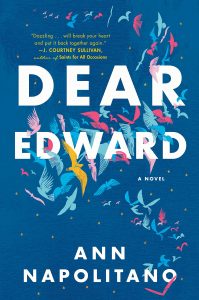
Ann Napolitano, Dear Edward
As the single survivor of a plane crash, twelve-year-old Edward will spend the rest of his life trying to make sense of the tragedy that spared him. When he receives a large amount of cash in compensation, he begins giving it away to the surviving relatives of crash victims. Here, giving money away becomes a way of seeking out meaning amidst the senseless luck of existence.
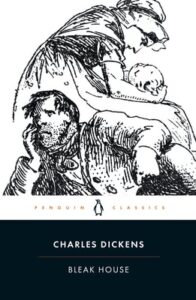
Charles Dickens, Bleak House
There are philanthropists of various kinds throughout the works of Dickens, but in Bleak House, there is a prototypical effective altruist in Mrs. Jellyby. Mrs. Jellyby becomes so absorbed by fundraising for the plight of a remote African tribe, that her house falls into disrepair, her family are ignored, and her own neighborhood is neglected. Although she’s presented as a deeply misguided character by Dickens—understandable given the levels of poverty in Britain at the time—in an age of greater global inequality, the priorities of Mrs. Jellyby would surely be viewed in a different light.
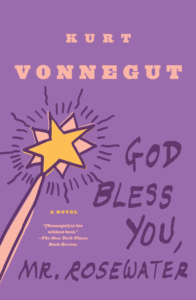
Kurt Vonnegut, God Bless You, Mr. Rosewater
Featuring Vonnegut regulars Eliot Rosewater and Kilgore Trout, God Bless You, Mr. Rosewater follows a millionaire heir who attempts to give away as much of his fortune as possible to the citizens of a small Indiana town. When his relatives discover this endeavor, they try to get him diagnosed as insane, which is the same response that Yara, the wife of Arthur Candlewick, has upon realizing what her husband is up to. The thought process is simple: How could any sane person want to give up so much wealth? But it’s easy enough to imagine a world in which the reverse was a question that could have people locked away: How could any sane person want to hoard so much more than they need? As ever, Vonnegut has a knack for distilling big ideas in sweet, simple ways: “I think it’s terrible the way people don’t share things in this country. I think it’s a heartless government that will let one baby be born owning a big piece of the country, the way I was born, and let another baby be born without owning anything. The least a government could do, it seems to me, is to divide things up fairly among the babies.”
__________________________________
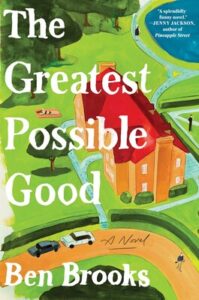
The Greatest Possible Good by Ben Brooks is available from Avid Reader Press, an imprint of Simon & Schuster.
